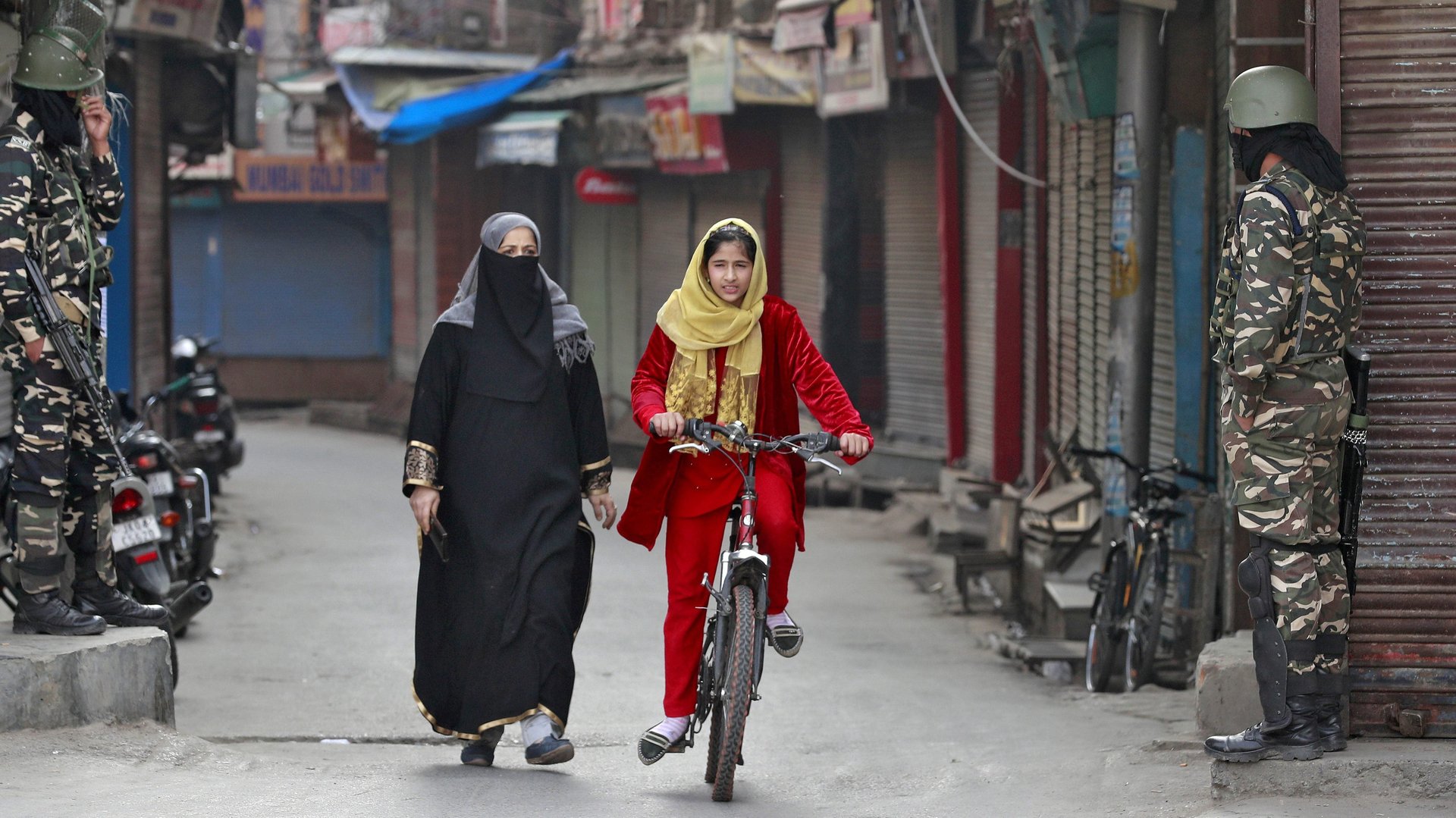India’s top court asks the government to review the internet curbs imposed in Kashmir
The supreme court of India today (Jan. 10) said the internet was a fundamental right and asked the central government to review its suspension in the union territory of Jammu & Kashmir.


The supreme court of India today (Jan. 10) said the internet was a fundamental right and asked the central government to review its suspension in the union territory of Jammu & Kashmir.
It directed the Narendra Modi government to restore “essential services,” including internet banking and online trading in Jammu & Kashmir.
The order came after the court considered several petitions against the communication and internet blackout in the region imposed days before Aug. 5. On that day, Kashmir’s status was downgraded from that of a state to a union territory. The government also rendered ineffective Article 370 of the Indian constitution, which ensured the former state’s autonomy.
Ever since, J&K has been under a virtual communication blockade, with restrictions being lifted only partly and tentatively.
The three-judge supreme court bench, comprising justices NV Ramana, R Subhash Reddy, and BR Gavai, had earlier reserved the judgment on the issue on Nov. 27 last year. The petitioners had argued that such blanket restrictions violate the fundamental right to speech and expression and the right to move freely under Article 19 of the constitution.
“Internet is a major means of information, therefore the freedom of expression (FoE) through the internet is part of Article 19(1)(a) and restrictions on it should be in accordance with restrictions to this right,” it said today. “Internet suspension without any particular duration and indefinitely is a violation of telecom rules.” The orders are also to be put in public domain which can then be challenged in court. “Power under section 144 cannot be used as a curb on the legitimate expression of democratic rights,” the court said.
The supreme court also directed the administration to review all the restrictive section 144 orders within a week. Section 144 of India’s criminal procedure code allows an executive magistrate of any state or territory to prohibit the assembly of four or more people in an area; every member of such “unlawful assembly” can be booked for rioting.
Though section 144 ought to be imposed only in urgent cases involving imminent danger of violence, authorities across India have frequently misused this law to arbitrarily prohibit any assembly of people. Recently, the Bengaluru police even detained historian Ramchandra Guha when he was protesting peacefully.
On Nov. 21, the Narendra Modi government had justified the restrictions, citing terrorist violence in Kashmir. It would be “foolish” to take down these restrictions and put the lives of citizens at stake, the government had argued.
The new normal
Since the abrogation of provisions of Article 370 on Aug. 5, 2019, the series of restrictions has been the new normal for the region.
Mobile phone, landline, and internet services have been disconnected in the erstwhile state of Jammu & Kashmir. Three former chief ministers, Farooq Abdullah, Omar Abdullah, and Mehbooba Mufti, were detained, along with hundreds of other political activists, to prevent protests against the abrupt change in the state’s constitutional status.
On Dec. 31, short messaging service (SMS) on mobile phones and broadband internet services in government-run hospitals were restored.
The supreme court’s ruling today brings further hope of the lifting of the iron curtain from over Jammu & Kashmir.